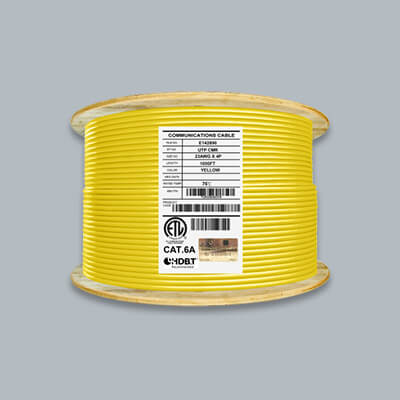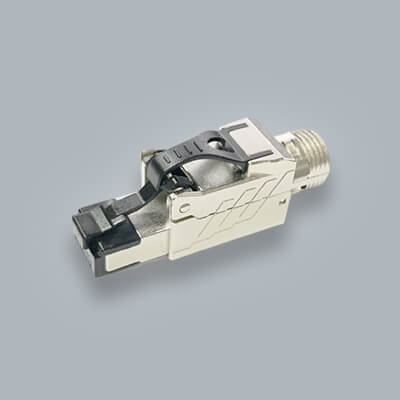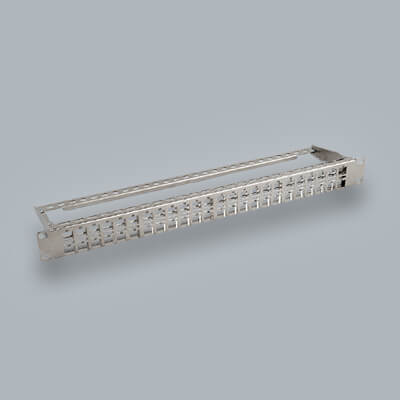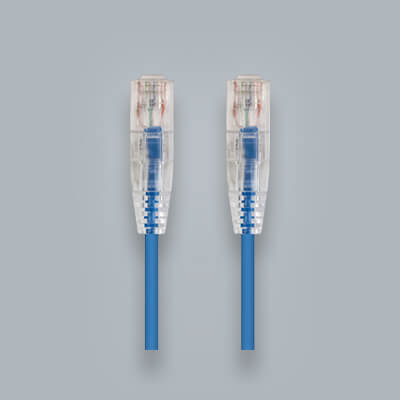Ethernet Cable Not Working

So you've just got your brand new ethernet cable or you just terminated the ends of your bulk cables. Now it's time to put your cable to use. Whether plugging the cable from the router to your computer or to your gaming console there might be a scenario where your ethernet cables just doesn't want to work. Or if you are on a gaming console maybe your ethernet cable is not detected. In this blog post we'll cover some of the head scratching issues that have us saying "Why is my ethernet cable not working?"
Getting Started Troubleshooting
The first thing we want to point out is the numerous possibilities why your ethernet cables isn't working. For the structure of this article we'll try to focus on some of the more common and uncommon reasons but in reality there can be many different variables at play. Some of the things you want to understand first is what type of products you are using? Here's a quick list of two things you want to know when trying to troubleshoot.
- What kind of cable am I using?
- What's the main issue?
- What are the devices I am using the cable with?
Knowing these will give you a good start in trying to figure out the issue at hand. Getting to know what cable you have will help you determine if its compatible with the products you are using. Boiling down the issue gives you a good starting point in your research on how to fix it. Then third knowing what type of devices you are using will filter troubleshooting advice even further. now that you hopefully have a summary of the issue and products in your network let's jump in to some of the reason why an ethernet cable isn't working.
1. Wrong Terminations On Your Wires
This is actually a quite common occurrence. If you have recently purchased bulk cable and are working on terminating the cables ends then this is something that you might run in to. Having your ethernet cables wires in the correct wiring scheme is important for the success of your cables connection. Not only do you want the wires in the correct order but you want both ends to be wired in the same scheme. There are a couple ways you can terminate your copper cables. You can either do t568a or t568b. In North America the more prevalent wiring scheme used is t568b. So we recommend sticking this this order for easier troubleshooting. T568A is often used in Canada. You can technically get away using either scheme but because b is used more stick with that. Here are the wiring schemes for reference in order from left to right.
T-568A
- Green stripe
- Green
- Orange Stripe
- Blue
- Blue stripe
- Orange
- Brown stripe
- Brown

T-568B
- Orange stripe
- Orange
- Green stripe
- Blue
- Blue stripe
- Green
- Brown stripe
- Brown

To recap on this, if you are terminating bulk cable look to the wiring scheme to make sure it's in the correct order.
2. Wires Not Inserted All The Way
The second issue in regards to the wiring of a cable could be that the wires are not inserted all the way in to the plug. You want to make sure that the copper wires are pushed to the ends of the RJ45 connectors. By doing this you ensure the gold contacts on the plugs can be contacted to the wires. This gives you a solid electrical connection.

3. Cable Not Plugged In All The Way
This seems like a pretty straight forward thing to do but you'd be surprised how often this is the reason for a bad connection. Make sure that you ethernet cables are securely plugged in on both ends of the cable. Whether you are plugging your cable in to an Xbox, PlayStation or computer having a cable that is inserted all the way will ensure that connection can be made.

4. Turn Off WiFi
If you are hard wiring an Ethernet cable in to your devices and at the same time running WiFi there could be an issue in the settings. If you're on Windows it's likely that your computer will give your Ethernet cable access over WiFi but its not always the case. If your cable wont work when using both go to your network setting in your computer. Go to Open Network and Internet settings. Look for the WiFi button and switch it to off. At the same time you want to find the Local Area Connection setting and make sure that is enabled. Wait until you see a connection start and you should be good to go.

5. Try A Different Ethernet Port
It could be a problem where your ethernet port is not working. To figure out if you have a faulty router or modem try plugging the Ethernet cable in to a different port on the device. A router typically comes with multiple ethernet ports on them. These ports are called LAN ports and they should be labelled so. If you aren't able to establish connection on the first port then give the second one a go. If that still doesn't work then try the remaining ports. If still no success then it might be because of an issue with your router. To confirm this you want to make sure you have double checked the direction with the router to confirm setup is done correctly. You can also try calling the manufacture of the device for even more information.

6. Try A Different Ethernet Cable
Another step you can do is to try a different ethernet cable. If you happen to have an extra cable lying around see if that cable is working with the same ethernet port. If there is no connection still after using a different cable it then could be an issue with the settings of device. What you can also do with your cable is try to plug it in to another device. Not the one you are having an issue with. See if your cable is working with that device and that will add some insight in to whether the cable is bad or not.

7. Update Computers Drivers
Keeping your electronic device up to date should be a good habit to form. Not only will updating your devices provide you with the latest technology changes to the software but it can also help with security patches and other bug fixes. The main reason why you want to update your computers drivers is to keep your CPU running smoothly. Drivers are on your computer to let your computer know how to work with other applications such as hardware devices.
8. Unplug and Re-plug Devices
We've all experienced the issues with WiFi signals going out. Our first thought is to usually unplug the router and plug it back in. Surprisingly the issue is usually resolved after doing this. The same concept can be applied to ethernet cables. Though this might not have the best of affect its worth a shot. Try unplugging your devices down to the router and plugging them back in. Wait until each device is back up and connected on the network then plugging them back in.
9. Run Network Trouble Shooter In Your Settings
It's likely that the computer you have has a feature that can help diagnose problems on your network. This feature is often called network troubleshooting and it is available on Windows computers and there are also ways to do this on Mac.
For Windows 10:
Click start on the dashboard then click in to settings. Select Network & Internet then status. Under Change your network settings select Network troubleshooter.
For Mac:
On your Mac choose the apple menu icon. Click restart, then press and hold the D key while your Mac restarts. Keep holding the D key until the screen listing different language appears.
Select a language then Apple diagnostics will start automatically.
After diagnostics are finished it will list an problems that might be occurring. Note: (The reference code is for use by Apple support team.)
Hopefully by following some of these steps your cable issues have gone away. But with the complexity that can come with many different components working together there might be the case where it's still not working. We reached out to some installers to get there take on some uncommon reasons why your cable isn't working.
Uncommon Reasons For Ethernet Cable Not Working
- If you're dealing with bulk cable and the cable wasn't long enough you might run in to an installer who decided to strip the cable and stretch the cables pairs out to reach it's target. Though unlikely the case it could occur if you are going to an older building with the wiring done many years ago.
- The cable run is too long. You can actually have a cable that is too long. The recommended channel length for the majority of cables is 328 feet (100 meters). By keeping the complete channel length under 328 feet you give yourself the opportunity to perform to the cables specs.
- The cable is kinked somewhere. A kink in a cable does nobody good! A kink in your cables can cause damage to the wires inside. If you're pulling the cable yourself try to keep a steady and consistent pull from the box or real to reduce the chances of any kinking. Need some more tips on this? We wrote a guide on pulling cable from a pull box.
- A technician might accidentally follow the wrong patch configuration and your cable might fail. Always be sure to have your installer or technician double check their lines to see if everything is ok. There are cable testers out there as well to help verify each patch connection.
Final Thoughts
Having your ethernet cable not work or not be detected can be a headache but there are a number of things you can do to help solve the problem. Try to figure out all the devices you are connected to and what type of cable you are using. This can help give you a good starting point in where to troubleshoot. Often the problem can be solved by simply re-plugging in or trying a different ethernet port. We hope after reading this list you're back up and running!
We'd like to thank some of our contributors to this post:
@aztec_pride_vargas , @jcinstalls_ltd and Attribsolutions
If you have any more solutions that are not listed feel free to contact us
Happy Cabling!






Great insights on troubleshooting Ethernet cable issues! It’s helpful to understand the common causes and quick fixes like checking the cable connections and testing with a different device. These practical tips will definitely save time and frustration for anyone facing connectivity problems. Thanks for sharing!
This blog post is a lifesaver! Dealing with an Ethernet cable not working can be a real headache, and your concise troubleshooting guide makes the process much more manageable. I appreciate the step-by-step approach, from checking physical connections to addressing software issues.
Today I removed a run of ethernet cable from a room that no longer needs it. I have 4 cables all terminating in the study. They come down an internal wall to a 4 gang wall plate.
When I disconnected the cable from the remote end and pulled it out we lost network connectivity.
I connected a network cable tester to each of the runs (study to lounge, study to kitchen and study to family room) and tested them. None are receiving signals from the signal generating unit (it has 8 LEDs which pulse across from left to right to indicate that each conductor is either good or bad and the receiver unit mimics this at the other end.
No LEDs are. flashing. I tested it using a patch cable. It works.
I thought about snagged cables and the like. But ALL of them are now dead and where they. go down into the wall cavity it all seems to be fine.
Any ideas, folks?
Hi
I’m a new security installer, so on the job I make my own connections of cat5 with rj45 connectors manually using crimper.
out of 4 cables 1 or 2 works others don’t work, then I spend our diagnosing where the problem is, resetting cameras manually, testing cable with network tester, then cutting those rj45 connectors making another fresh ones hoping this would work. It’s very time consuming and really I mean wasting time.
I’m not sure why it’s happening, any tips advise would be great
Even with a new ethernet cable I kept on getting a message that says " No Internet.. with various reasons like “cable not plugged iin properly.or broken cable”
I opened the PC and find a lot of dust inside…after cleaning and blowing all dust out..I could connect to Internet again.
Apart from the D Link extender red light issue, the D Link extender orange light issue has also been troubling users for quite some time now. In case the LED light on your D Link wireless range extender is also blinking orange, then it might be because of several reasons.
My ps5 was working with my Ethernet. Well suddenly it cannot find a connection.I noticed a few times Ethernet would disconnect suddenly on ps5 a few times. So I rebooted router still nothing. But same Ethernet line works on smart tv. So something changed on ps5. Thx for article hopefully I can figure out the problem. This Wi-Fi crap lags and I just want to resolve the issue.